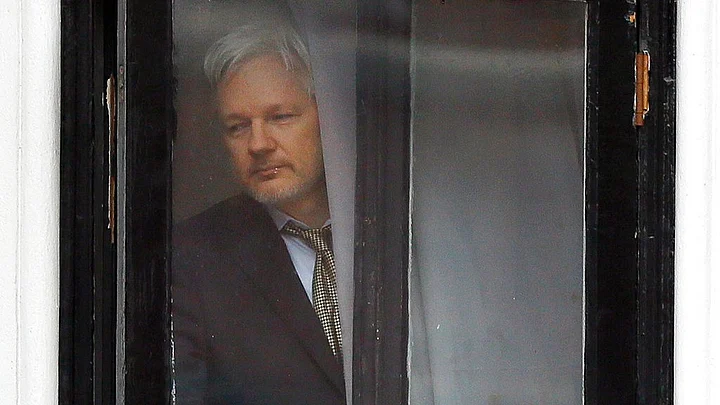A judge ruled against WikiLeaks founder Julian Assange on Monday, 29 October, rejecting his request to loosen new requirements that he says are meant to push him into leaving his asylum in the Ecuadorian Embassy in London.
Judge Karina Martinez decided stricter rules recently imposed by the South American nation's embassy – such as requiring Assange to pay for his internet and clean up after his cat – do not violate his asylum rights because authorities have the right to decide what is and isn't allowed inside the building.
Ecuadorian officials praised the ruling in the latest row between the Australian hacker and the government that has provided him refuge for six years.
Relations between Assange and Ecuador have grown increasingly prickly as the years have dragged on with no solution in sight.
Assange's lawyer vowed to appeal the decision.
“The Ecuadorian state has an international responsibility to protect Mr. Assange.”Carlos Poveda, Lawyer
New Measures More Expensive: Assange
Assange argued that the new measures making it more difficult to receive visitors and requiring him to pay for services like laundry and medical bills are meant to coerce him into ending his asylum.
The rules also make it clear that if Assange doesn't properly feed and take care of his cat, the animal could be sent to the pound.
Ecuador's government contended the requirements are aimed at peaceful cohabitation in tight quarters in the small embassy, where Assange takes up more than a third of the space. Officials have complained that his soccer playing and skateboarding have damaged the building.
"It's clear this protocol was issued with strict respect for international law," Jose Valencia, Ecuador's foreign minister, said after the ruling.
Background
Ecuador granted Assange asylum in the embassy in 2012 as he tried to avoid extradition to Sweden. Sweden's top prosecutor later dropped a long-running inquiry into a rape allegation against him, saying there was no way to detain or charge him because of his protected status in the embassy.
Nonetheless, Assange remains wanted in Britain for jumping bail, and he also fears a possible US extradition based on his leaking of classified State Department documents.
Assange initially enjoyed a cozy relationship with then Ecuadorian President Rafael Correa but relations with his host nation have steadily deteriorated. Current President Lenin Moreno has warned him not to meddle in matters that can jeopardize Ecuador's foreign relations.
(At The Quint, we question everything. Play an active role in shaping our journalism by becoming a member today.)
